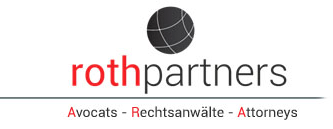
SHORT NEWS COVID 19 – LAUNCH OF THE 2ND PHASE OF THE DE-CONFINEMENT FROM 02 JUNE 2020
 June 2, 2020 was considered the next phase of the de-confinement in France, which was initiated on May 11. This has taken the form of further easing of restrictions on freedom of movement, return to schools, colleges and high schools, the reopening of bars, restaurants and cafés, parks and gardens and the resumption of cultural and sporting life.
June 2, 2020 was considered the next phase of the de-confinement in France, which was initiated on May 11. This has taken the form of further easing of restrictions on freedom of movement, return to schools, colleges and high schools, the reopening of bars, restaurants and cafés, parks and gardens and the resumption of cultural and sporting life.
In his speech on Sunday evening, 14 June, the President Emmanuel Macron has declared an acceleration of de-confinement. Cafés and restaurants in the Paris Region will thus be able to reopen normally from 15 June, while nurseries, schools and high schools will be operating at full capacity from 22 June and will promote the recovery of economic activity.
1. Daily Life
The French territory was re-divided into a green and an orange zone with the entry of the second phase. On the basis of various criteria (new infections, available tests and hospital capacities) a map with differently colored departments was created. Depending on the color, the easing of restrictions varies and is more severe in the orange zone. With the announcement of Sunday 14 June, Macron declared that the orange zone includes now only the overseas departments of Mayotte and Guyana, where the virus is still active.
The population has been able to move freely throughout France again without a certificate, as was needed before, since 2 June and there is no longer a restriction on the kilometers travelled.
With the second phase of de-confinement, all primary schools and middle schools in metropolitan France have also reopend, as well as high schools in the departments classified as green, but in a gradual manner. Emmanuel Macron began his speech on 14 June with a key announcement: the return to nurseries, primary schools and middle schools under “normal conditions” will take place on Monday 22 June. School will thus become “compulsory” again. For now, high schools are not affected and are continuing a gradual recovery.
Closed at midnight on Saturday 14 March, cafés, bars and restaurants reopend normally, and since Monday 15 June also in Paris Region. Stricter conditions apply to businesses in the “orange zone”, where only the terraces can receive customers. Strict sanitary rules must be respected: a maximum of ten people per table, at least one meter between each group, standing consumption prohibited in bars. A decree published in the Official Journal details this new step, recalling in particular that the oversea departments Mayotte and Guyana are in the orange zone because of their health situation. The mask is also mandatory for waiters, and for customers who want to use the bathroom.
The second round of municipal elections is confirmed by the Head of State. This does not directly concern this Monday, 15 June, but the decision has been taken: the next round of voting can take place in the municipalities concerned on 28 June, as the government has been planning for several weeks now.
With regard to the opening of the borders, the President announced further the possibility of moving between European countries from 15th June. And from 1 July, French citizens will again be able to travel to countries outside Europe where the epidemic is under control.
Note that the highly criticized StopCovid tracking application, designed to track the spread of the coronavirus, is available since Tuesday, 02 June.
The date of Monday, 22 June marks the entry into the third phase of de-confinement.
2. Economy
If possible, companies and production facilities should resume operations. However, the government has high sanitary requirements, including a visual clearance of at least 4m² per employee. The wearing of masks is recommended, but not mandatory.
In order to encourage people to return to work, the State has reduced its coverage of the costs of short-time working from 100% to 85% with effect from 1 June. This means that companies will have to finance the remaining 15%, except in certain sectors still affected by restrictive measures. For employees, the allowance will remain the same (70% of gross wages, i.e. about 84% of net wages).
Short-time working will continue to be available to parents whose children could not attend school (on certification) and to vulnerable persons who cannot work from home.
Macron also promised a mobilization to save as many jobs as possible. He announced discussions with trade unions and employers to save as many jobs as possible despite the decrease in economic activity among many companies. “In total, we have mobilised almost 500 billion euros for our economy. This is unprecedented.” said the president, who promised not to raise taxes.
3. Judicial activity
While the state of health emergency is extended until 10 July 2020, the ongoing deadlines before the INPI (“Institut national de la propriété industrielle” – National Institute of Industrial Property) will not be affected by this new extension. The term of the extension of the deadlines, which until now depended on the end of the state of public health emergency, is now fixed: it is 23 July 2020 or 23 August 2020, depending on the case. More specifically, all deadlines expiring between 12 March and 23 June 2020 are postponed to 23 July 2020 if the initial deadline was one month and to 23 August 2020 if the initial deadline was two months or more.
Furthermore, the courts throughout France resume their activities gradually and hearings are held again.
This is also the case of the Commercial Court in Paris:
The hearings in the presence of witnesses resumed as of June 8, each one must respect the health requirements (distance,masks…) The clerk’s office establishes, file by file, staggered convocations to facilitate compliance with health rules. Each chamber will sit twice for procedural hearings by 3 July. As of 8 June, the Chambers in principle hear the cases that had to be called at the first two hearings of their Chamber since 16 March and then, at their second hearing, the other cases not called during the confinement period. (However, this rule could be adjusted if too many cases were likely to be appealed, leading to postponement of their consideration to the next hearing or even early September).
The insolvency proceedings chambers will continue to deal with urgent cases as they have done since the beginning of the health crisis, as well as with prevention proceedings.
Cases of insolvency proceedings coming on summons from creditors will not be recalled in the immediate future.
Elisabeth HEIL
VOUS AIMEREZ AUSSI


Whistleblowing : how whistleblowers will be protected ?






